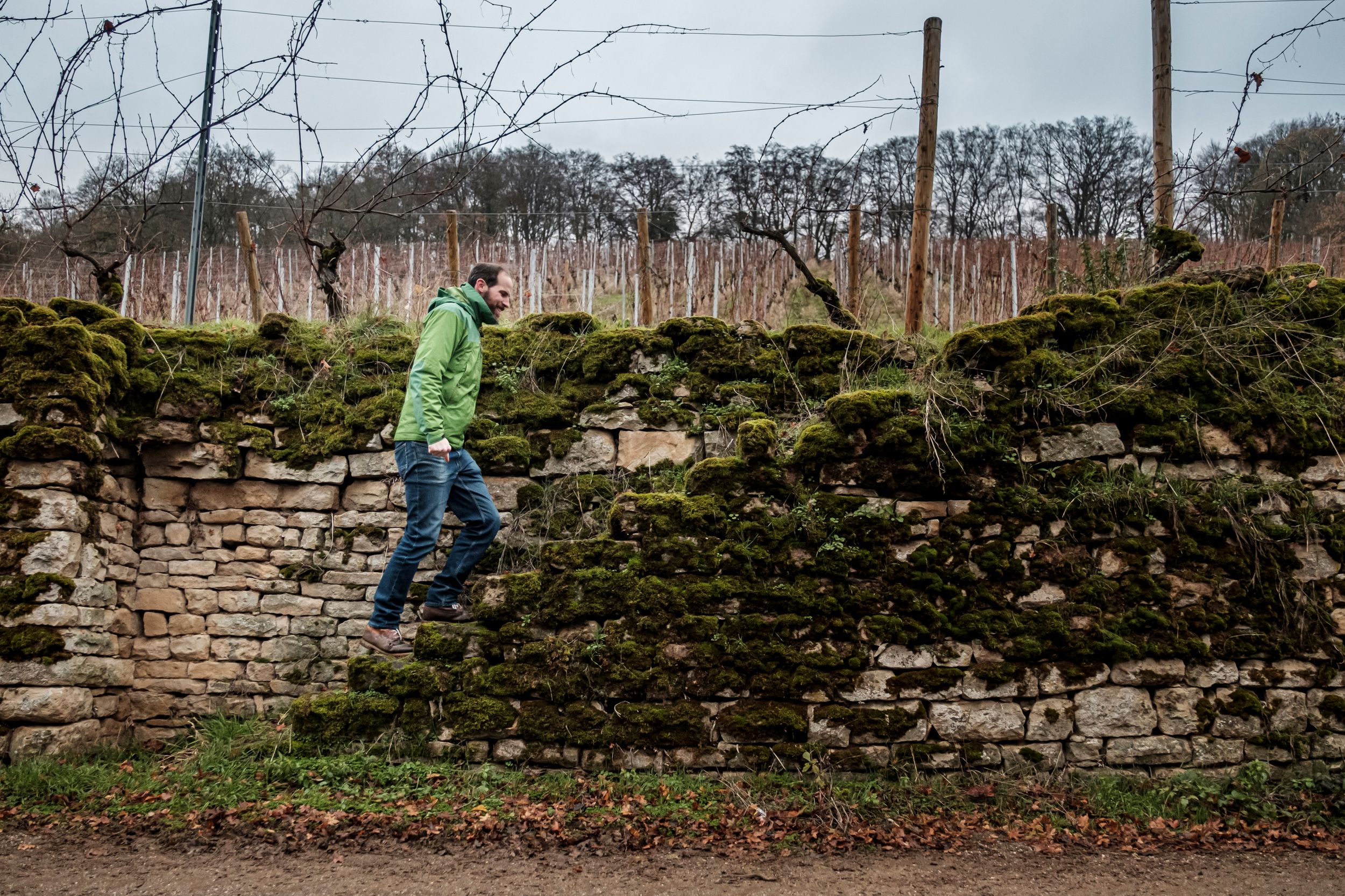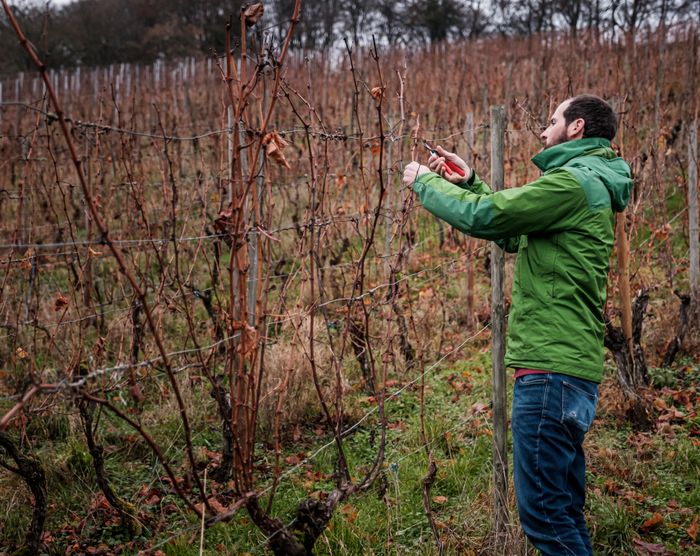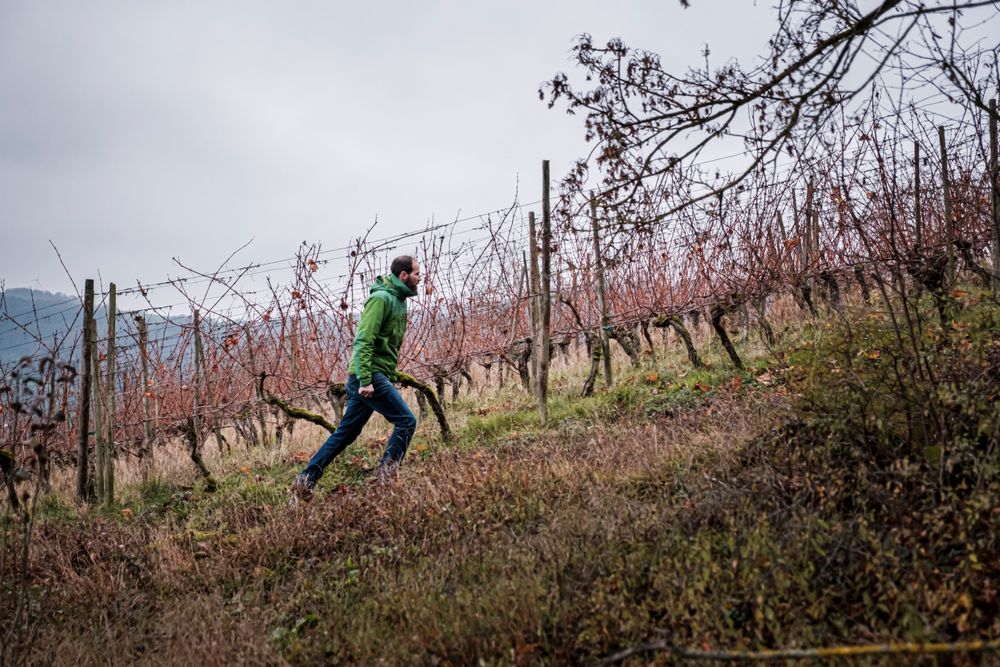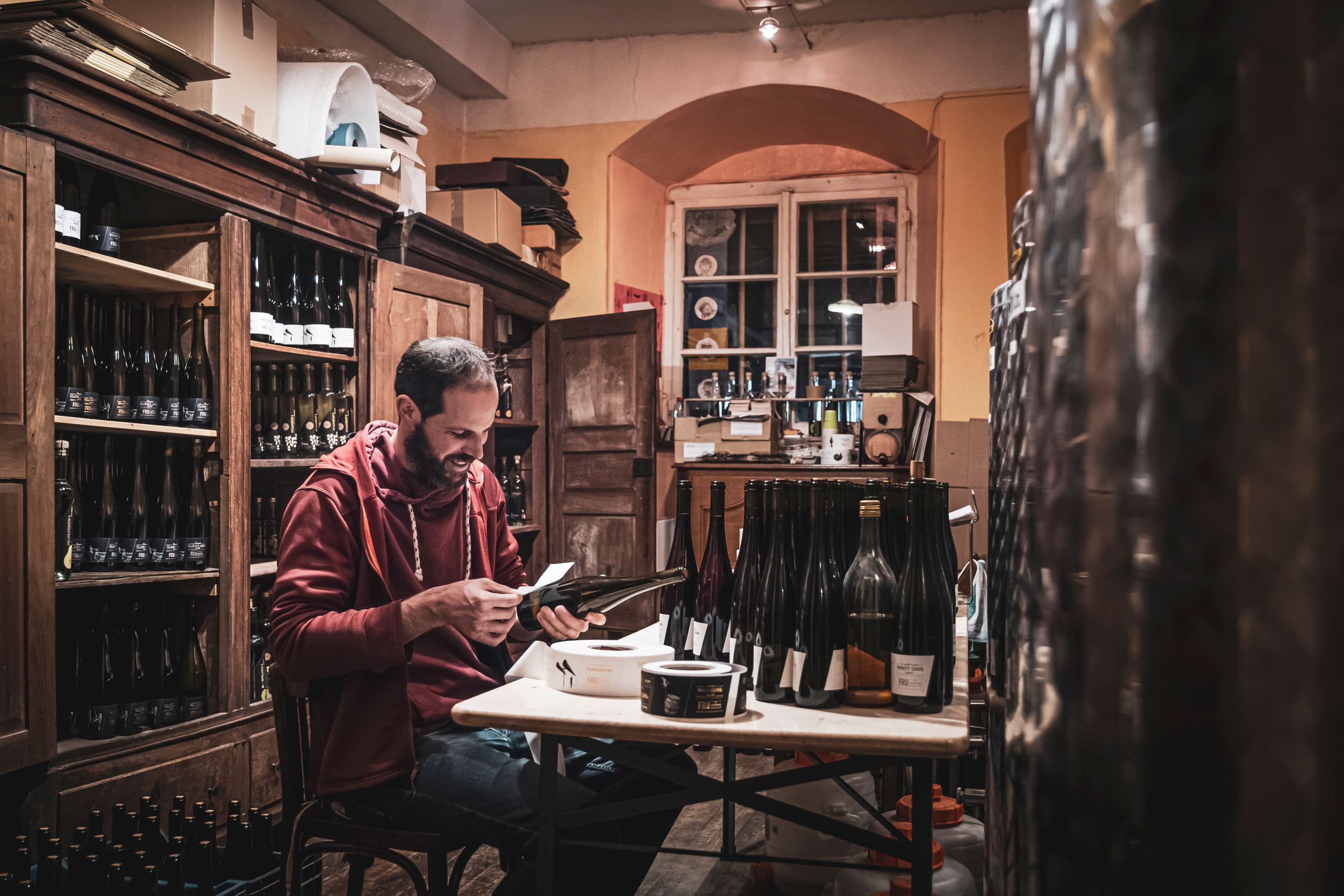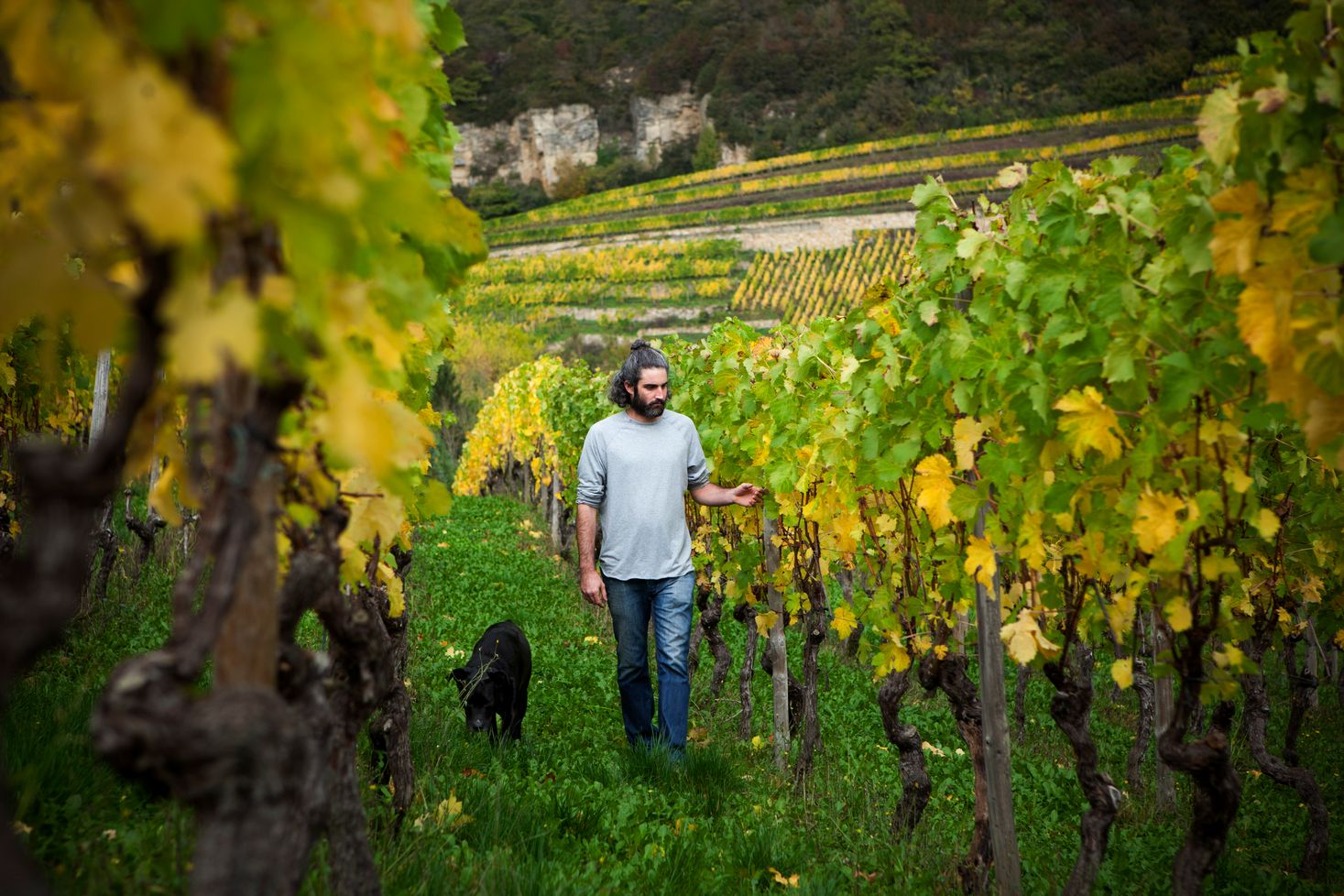“Fru” at heart
Grapevines along the Sûre and Moselle produce both fine wine and delightful table wine. Young viticulturist Georges Schiltz set up his own experimental winery on land cultivated for generations.
Georges Schiltz seems eccentric at first. Back when he was a geography student, he had a wacky idea: growing grapevines. He does not come from a family of winemakers and still decided to set up shop and do his own thing in an area farmed by viticulturists since Roman times.
They’re referred to as “young and wild”. The new generation of winemakers marked by a desire to experiment with new cultivation methods and confer with international colleagues. They also value bottle and label design because, well, they’re part of the charm!
It’s a generation that cares deeply about making their job and life in general sustainable. For them, sustainability is not just a tagline.
At 32, Georges Schiltz is on of the “young and wild” ones. Originally, he studied geography with the goal of working in development aid. But early on, his grandfather introduced him to the art of distillation. Georges was fascinated by the idea of extracting flavour from the orchards surrounding his parents’ farm house. And so, a hobby turned into more. Still a student, he learned how to produce fruit spirits professionally. He began selling schnapps and liquor under the Tudorsgeeschter label. Rosport residents are often referred to as “Tudor’s ghosts”, after Henri Tudor who lived in Rosport and developed the first lead-acid battery.
The vineyards awaken Georges’ curiosity. He wants to coax flavour out of these fruits too. A pretty ambitious project considering he doesn’t come from a wine-growing family and doesn’t even have a vineyard!
“On a study trip in Bolivia it hit me. Confronted with the loss of rainforest on one hand and the modest homes of the local population on the other, I realised that I wanted to help preserve the cultural landscape of my home country,” says Georges. “We are so coddled in Europe. What’s the worst that could happen? I fail. That’s not so bad.” Doing something that gives life a deeper meaning and isn’t just about earning a living must be rewarding. His mind was made up.
